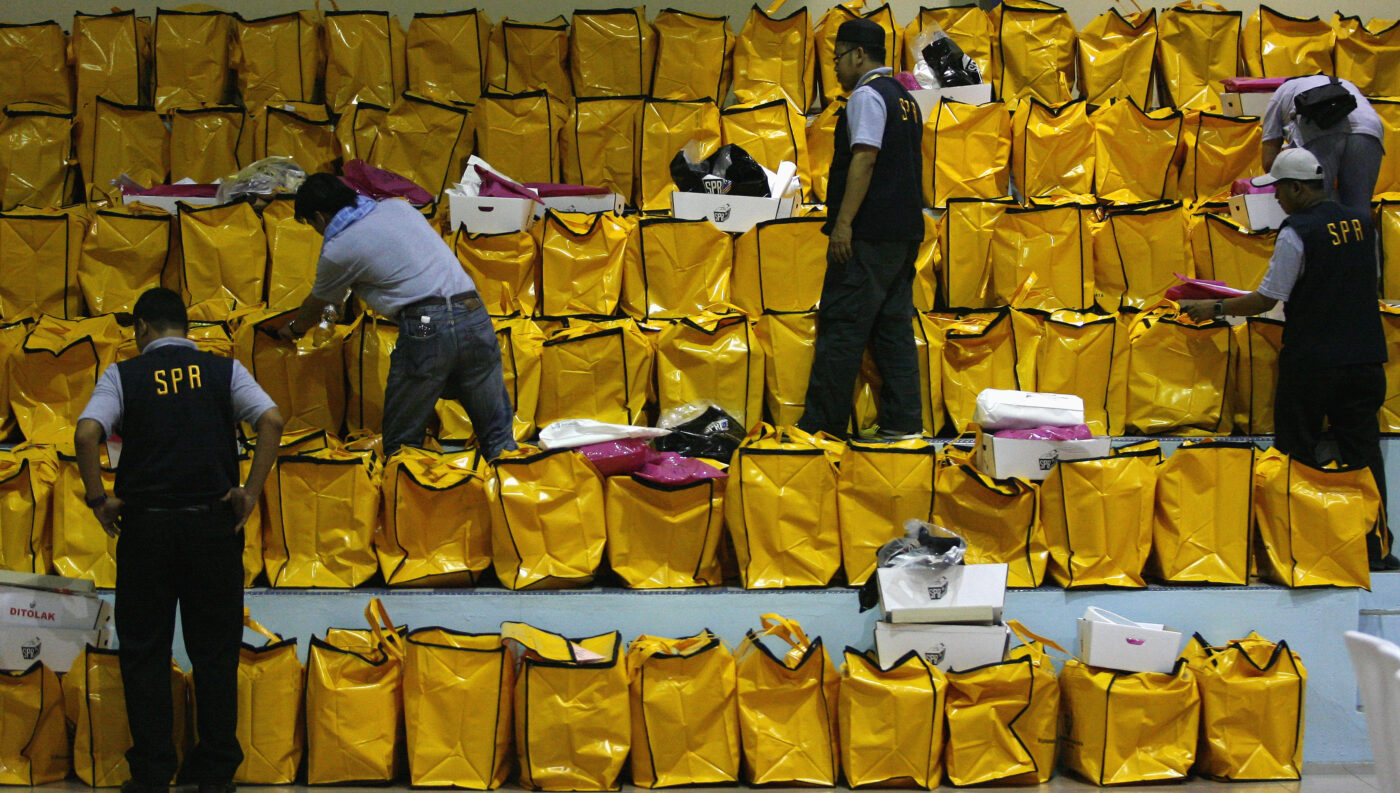JUST AS Filipinos lined up last month for our national midterm elections, the citizens of Malaysia cast their own votes last May 5.
Najib Razak, leader of the Barisan Nasional (BN) coalition, is seated once again as Prime Minister, winning over the opposing Pakatan Rakyat (PR) coalition leader, Anwar Ibrahim. Filling 133 spots, BN also occupies the majority of the seats in the Malaysian Parliament, leaving PR with 89.
However, issues regarding the newly-elected government officials were already being raised even before their term officially began, with vote-buying allegations hounding the election results.
Arising contentions
Harvey Chua, president of The Ateneo Assembly, shared that his organization’s research arm monitored the Malaysian elections, taking note of the “various news reports” that declared the recent polls “neither free nor fair.”
“Most alarming of [the election issues] is the use of government funds for the BN campaign [including] $24 million for advertising alone,” says Madeleine Ong, The Ateneo Assembly’s associate vice president for research and analysis.
Due to “supposed electoral fraud,” Ong also mentioned that mistrust in the present government—which has ruled since 1957—has already formed among the people.
Not yet a Sabah issue
Chua was quick to add, however, that “election-related controversies only affect UMNO’s [United Malays National Organization] legitimacy with the Malaysian people domestically and do not have any real impact on their negotiating position on territorial disputes.”
According to Hansley Juliano, an instructor from the Ateneo Political Science Department, the situation “will only attract the concern of the international community” if civil conflicts in Malaysia arise.
“So, if we will be talking about our relationship with them over Sabah, it is all contingent on whether they will be actively pursuing and appropriating Sabah for themselves, in the same way the Kirams tried to invade Sabah a few months ago. But considering how the Aquino administration seems to be very uninterested in pursuing such claims, I doubt it will resurface,” Juliano said.
Dean Julkipli Wadi of the Institute of Islamic Studies in the University of the Philippines Diliman, also thinks that the territorial dispute will be unaffected by the recent Malaysian elections. “[The Philippines and Malaysia are] like to maintain the state of affairs. In other words, there would be no radical change in the policy,” he said.
But Wadi also said, in a mix of English and Filipino, “If worse comes to worst, there will be polarization in Malaysia if the opposition provides strong evidence of electoral irregularities, and it isn’t far-fetched that there could also be leakage in the South. If there is regional tension, the problem [of the Sabah dispute] will be even bigger.”
“This is the dilemma of our Muslim brothers in the South. They are ‘sandwiched’ by two geopolitical forces which are very jealous of their sovereignties and their territories,” he added, referring to the Muslim Filipinos living in Mindanao.
A rising opposition
Juliano said that the results of the 13th General Malaysian elections might have echoed the events of the US Presidential elections in 2000. He said that the scenario in Malaysia might be similar to how Al Gore won the popular vote yet lost to George Bush by the number of states.
He noted that while Ibrahim might have gained support from most of the Malaysians, he still failed to challenge the dominance of BN in terms of parliamentary positions. He said that this might be due to PR’s inability to “crack into regions which deliver a large number of seats.”
Race has also been a critical factor in the outcome of the Malaysian popular vote, with the ruling coalition’s policies in favor of Malays making the ethnic minorities vote for the opposition in the previous two elections. “UMNO are continuing in their rightward lurch of being rabidly pro-Malay, at the expense of pacifying the Chinese constituency BN is supposedly allied with,” Juliano explains.
UMNO has dominated Malaysian politics since the country’s independence. However, this dominance has been receding as allegations of human rights abuse, corruption and nepotism caused disenchantment among urban dwellers, leading to the advent of strong opposition such as PR.




